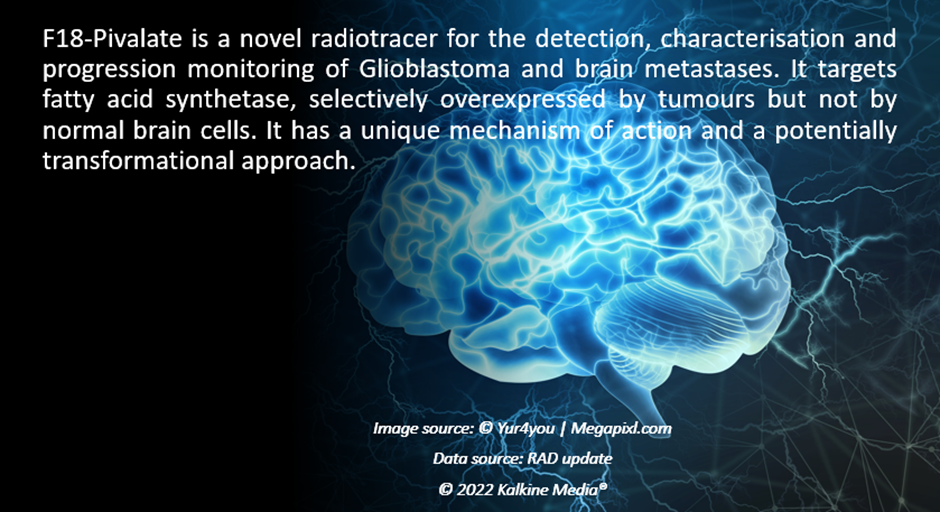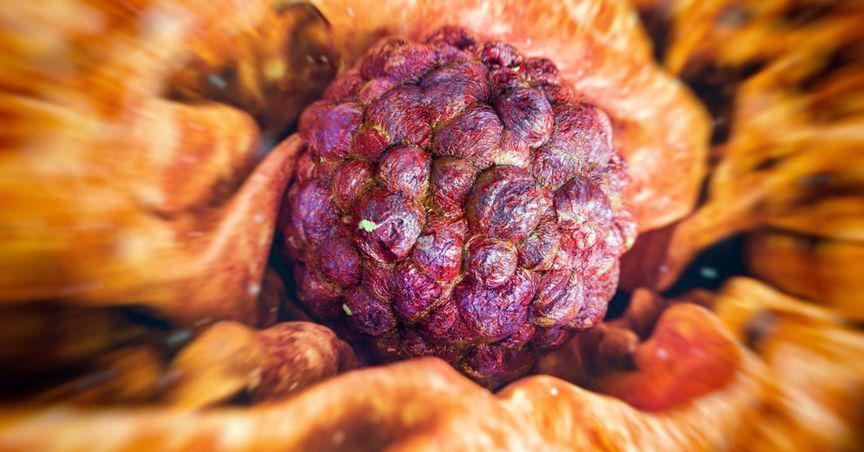Highlights
- Radiopharm has shared positive and encouraging results from Phase 2a study of RAD 101 or F-18 Pivalate.
- The study performed F18-Pivalate PET/MRI in patients with one or more cerebral metastases.
- In the study, F-18 Pivalate PET demonstrated high uptake irrespective of the origin of the primary tumour
- The potential market size of brain metastases is US$1,253.5 million, suggested RAD.
Radiopharm Theranostics (ASX:RAD) has provided an important update on RAD 101, one of its products under clinical development pipeline in the United Kingdom.
The ASX-listed company informed that Imperial College London's F-18 Pivalate (RAD 101) has achieved successful Phase 2a data in patients with brain metastases. The results showed substantial tumour uptake that was consistent and independent of the origin of the tumour.
Radiopharm acquired an exclusive worldwide licence for the Pivalate platform technology from Cancer Research Technology Limited and Imperial College London. Moreover, the company has a sponsored research agreement on new analogues with Professor Aboagye, the lead inventor of 18-F Pivalate.
Prospects of F18-Pivalate

During illness, about 20-40% of patients with cancer will develop metastatic cancer in the brain. F18-Pivalate tries to overcome the limitations of currently available technologies such as PET FDG and MRI due to necrotic, inflammatory, and high sugar uptake confounding factors.
According to Radiopharm, there are nearly 390K cases of brain metastases in the US per annum, and the potential reimbursement price per dose could be US$4,730. Overall, the potential market size of the indication is US$1,253.5 million, suggests the reports.
The study, led by Professor Eric Aboagye, was funded by the Medical Research Council. Following are the results of the study.

Commenting on the results, Professor Aboagye, from Imperial College London, stated: "This technology, when compared to the current clinical standard in PET imaging, has showed superior imaging performance in several cancers. We're very pleased to see this interim data further confirms its potential."
RAD 101 (Diagnostic)
According to Radiopharm, the company's Scientific Advisory Board will conclude a detailed analysis of the Phase IIa data and determine the most proper use case in clinical practice. There will be a meeting with the Food and Drug Administration (FDA) to determine a regulatory pathway to expedite the development of Pivalate for imaging.
RAD 102 (Therapeutic)
The imaging proof-of-concept supports the therapeutic development of RAD 102. Radiopharm will select the final therapeutic candidate and leverage Phase IIa imaging data for Therapeutic Phase I protocol in patients with brain metastases and/or glioblastoma.
A full presentation of the results will take place at the 34th EORTC/AACR/NCI symposium in Barcelona (26-28 October 2022). The company stated that the study will also be published in a peer-reviewed journal in due course.
Stock information: RAD shares traded at AU$0.16 on 12 October 2022.



